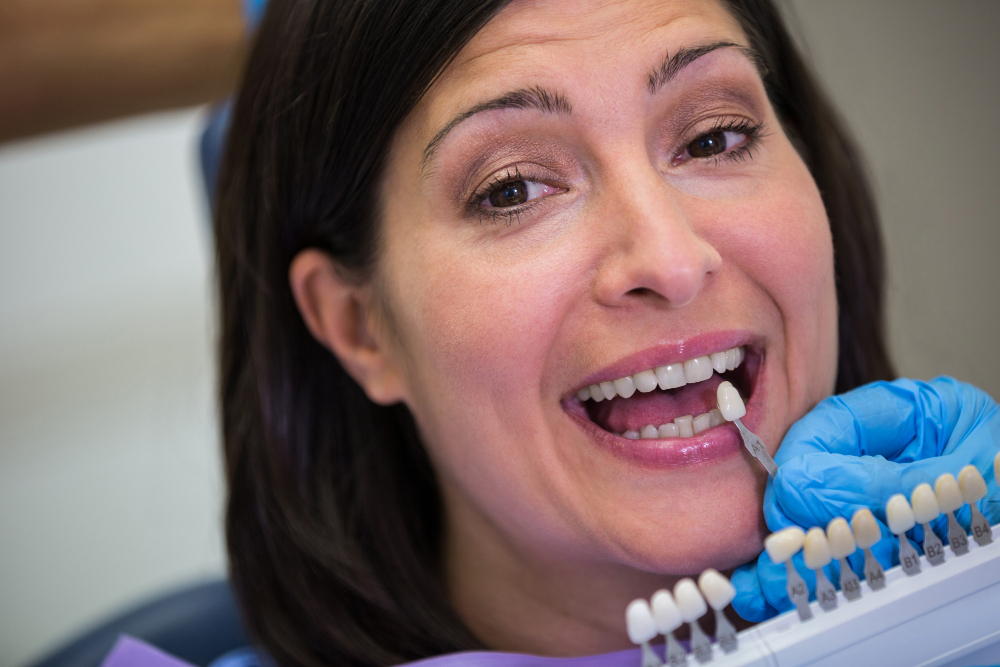Are Titanium Implants Toxic? A Holistic Dentist’s Perspective

Titanium dental implants have been the gold standard in tooth replacement for decades. They’re known for their strength, durability, and high success rate. But in the world of holistic dentistry, a question often comes up: Are titanium implants actually safe for the body long-term? Some patients are concerned about potential toxicity, allergic reactions, or whether titanium could interfere with their body’s natural balance. If you’re exploring more natural or integrative health options, understanding the full picture of titanium implants is essential.
What Makes Titanium So Popular?
Titanium is widely used in medicine—not just in dentistry, but also in joint replacements and surgical tools—because it’s generally biocompatible and resistant to corrosion. It integrates well with bone through a process called osseointegration, which makes it ideal for dental implants. However, while the majority of patients do not react negatively to titanium, holistic practitioners often look deeper, asking whether even trace levels of metal exposure can affect sensitive individuals. Dental Implants in Bexleyheath are typically made from high-quality titanium to due to its strength, durability, and proven compatibility with bone.
Is Titanium Truly Biocompatible?
Most mainstream dentists view titanium as biocompatible, meaning it doesn’t trigger an immune response in most people. But holistic dentists often take a more nuanced approach. They may recommend biocompatibility testing before implant placement, especially for patients with autoimmune conditions, chronic fatigue, or unexplained inflammation. A small percentage of people may have a metal sensitivity, which could cause subtle symptoms like fatigue, brain fog, or joint discomfort that traditional medicine might overlook.
Inflammation and the Immune System
One of the biggest concerns in holistic dentistry is chronic inflammation. While titanium itself is inert, improper placement, poor oral hygiene, or underlying sensitivity can lead to peri-implantitis—a type of inflammation around the implant. This inflammation can trigger immune reactions, which may not just be local but systemic. Holistic dentists aim to prevent these issues by using advanced imaging, careful planning, and recommending strict post-op care to keep the body in balance.
Could Titanium Ions Leach Into the Body?
In rare cases, titanium particles or ions can be released into the surrounding tissue. This can happen due to corrosion, micromovement, or long-term wear. While current research suggests these levels are usually minimal and not harmful, some holistic experts believe cumulative exposure to metals—even in small doses—could contribute to long-term health issues. This concern is particularly relevant for patients with multiple metal restorations or those seeking a metal-free lifestyle.
Are There Alternatives to Titanium Implants?

For patients concerned about metal toxicity or allergic reactions, zirconia implants are a popular alternative. Made from a strong ceramic material, zirconia implants are 100% metal-free and have been praised for their aesthetic and hypoallergenic qualities. While they may not be suitable for every case, they are a promising option for those with heightened sensitivities or a preference for a more holistic approach. A consultation with a dentist trained in both traditional and holistic techniques can help determine the best fit for your needs.
Whole-Body Health and Dental Decisions
From a holistic standpoint, your mouth is deeply connected to your overall health. Decisions about implants shouldn’t be made in isolation—they should take into account your medical history, immune function, lifestyle, and even stress levels. Whether you choose titanium or zirconia, it’s essential to work with practitioners who understand the big picture and support your goals for long-term wellness.
Titanium dental implants aren’t inherently toxic for most people, but holistic dentistry teaches us that one size never fits all. While many patients thrive with titanium implants, others may benefit from alternative materials or more personalized assessments. If you’re navigating this decision, don’t hesitate to ask questions, seek testing, and explore your options. Your mouth is just one part of your body—but it can tell you a lot about your health.


